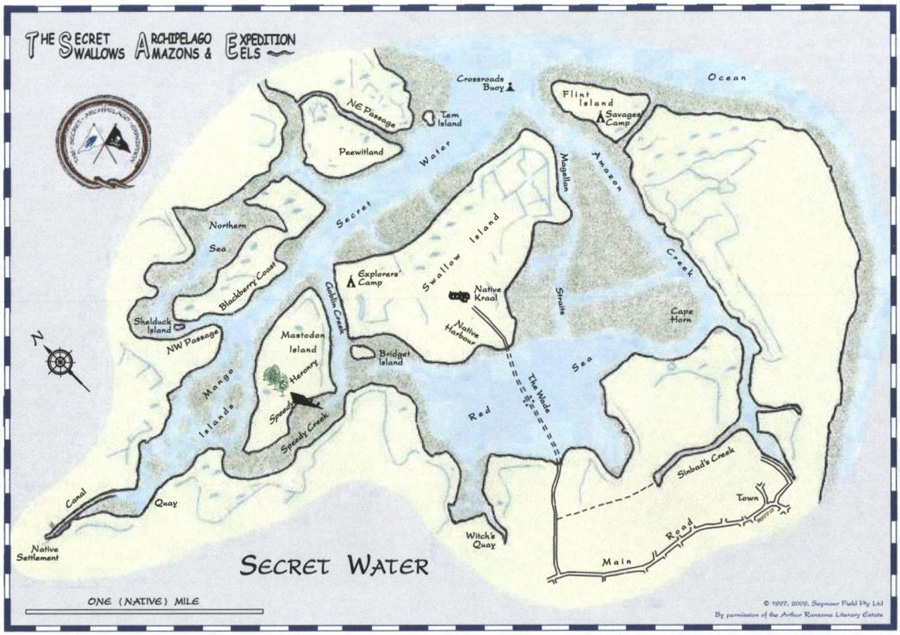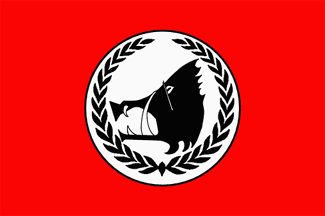Item the first: When I fell off Bella I landed on the point of my hip. I was kinda stiff for a few days but mostly okay, and even had a riding lesson in the midst of it; but then I had an evening lesson with Dez and Dez was eeeeville; no-stirrups, trot over a crossbar and canter out from it evil. I could not do it. I can half-ass most things on a horse, but this felt like there was a pointy bit of metal jammed into my hip joint, so I had to opt out. Mehness, and likewise mehitude! I was actively limping all weekend, which suhuhuhucked, because that weekend we went to China Camp with the camping gang, who are all great fun and who love to hike. My hip was so hurty Saturday night that it took me forever to get to sleep, even in our lovely tent under the lovely trees.
Lucky J and I had dug some old Burning Man camping armchairs outta the attic, because I jammed myself into one of those Sunday morning and read books for a couple of hours while the able-bodied – including, humiliatingly, my four-year-old – circumnavigated Turtle Back Hill. This was follow-the-sun sloth, because I had to keep dragging my chair into new sunbeams in the woods at our campsite. Eventually the chair had little tracks behind it, as do rocks on Racetrack Playa. Anyway, enough rest and being lazy and I started to get the circulation back in my toes, and on Tuesday night I had a decentish ride on Omni, the big handsome black off-the-track Thoroughbred I have been riding lately.
Omni is item the second. He’s way dumber than lovely Bella but he’s brave and strong and gentle and wouldn’t harm a fly. He reminds me a little bit of Scottie in that you talk to him through his cadence, lengthening and shortening the rhythm of his stride. But Scottie was a big chicken, and Omni’s not afraid of anything. I am, you’ll be relieved to hear, not getting attached to him at all; when I secretly think of him as Black Beauty I am merely being ironic. The other day, when the message I was passing along the reins to him was “I love you, I love you, I love you,” was an inexplicable error for which the management apologizes; the relevant brain centres have been summarily fired.
Item the third is maps. One reason I adore China Camp is because it is surrounded by wetlands, so that the map of it always reminds me of the awesome map in Arthur Ransome’s Secret Water:

What made it even awesomer this time was reading Secret Water to Claire. We’ve been having a revival of Swallows & Amazons fever ever since Liz moved into a houseboat and Danny bought Daisy. I see that Liz has been doing some cartography of her own.
Item the Fourth: glory but I have been having a brilliant run of books lately. I can especially recommend The Little Stranger and The Haunting of Hill House, two basically perfect Gothic horror stories; The Cleanest Race: How North Koreans See Themselves and Why It Matters, which succeeded in making me even more upset about the DPRK, which is quite a feat; The Immortal Life of Henrietta Lacks, the first book of popular science to reduce me to incoherent sobs three times – it encompasses the whole spectrum of what I think of as My America, from Wired to The Wire; everything by Peter Hessler, whose books are an excellent complement to that awesome Yellow Gorges documentary we saw, Up the Yangtze; The Marketplace of Ideas, which I think lingered in the back of my mind all through this Cambridge jaunt until I had the first glimmering, a couple of weeks ago, of insight into the way the Oxbridge experience was intentionally watered-down and exported throughout the English-speaking world, so that what I was given was not a classical education in that sense but a colonial simulacrum of one, the University of Sydney as a branch of the Scouts or Pony Club – not a new insight at the intellectual level (sidere mens eadem mutato, after all) but actually *felt* this time around, and now having to be processed; and on an entirely different note, a novel that has stayed with me ever since I read it much earlier this year, Michelle Huneven’s remarkable Blame.
Blame got me interested in AA, which turns out to have been heavily influenced by William James’ The Varieties of Religious Experience, a copy of which is also on my nightstand waiting to be read, which is not altogether surprising as both the Huneven and the James were recommendations from Jessa Crispin, whose taste is sometimes enigmatic but never dull. Oh! I am so very fond of books, and of the San Francisco Public Library, and I am so lucky to have them.
Item the Fifth: I want to tell you about two awesome things that Claire said; forgive me. On the second-last morning in London we took McKenze out for a large and stodgy English breakfast. McKenze was amused at having overheard Julia describe her as “bossy”; we laughed, and asked the children whether McKenze was bossy or nice. Julia stubbornly stuck to “bossy”, but Claire said with what was to me quite surprising judiciousness: “bossy and nice.”
Later she came up with an idea for an art project for this year’s Balsa Man. I said that this year we could stay back from the fire, so she wouldn’t have to be scared about getting burned, and she said something that absolutely floored me:
“I wasn’t scared I would get burned. I was scared for some of the other people, who were being silly.”
She’s only seven. She was six when this happened, and she got in such a right state about it that I had assumed for a year without even thinking about it that she was terrified on her own behalf. I’d no idea she had such complex modelling of and empathy for complete strangers in place already. Some days I think maybe I am doing a few things right. But really I can’t take much credit for her remarkable and complicated self; it is, after all, her self.
I guess I did have a lot to say, and didn’t need the artificial constraint of Five Things Make A Post after all! Let me go back and rewrite the segues! Nah, bugrit. You know I love you, right?




